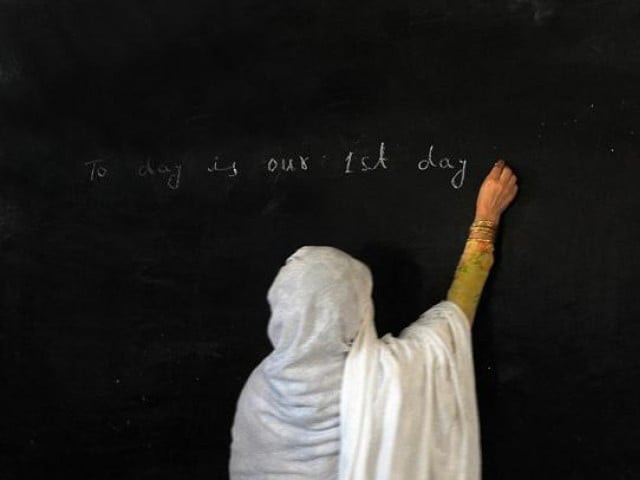College teacher recruitment drive begins
In initial phase, 310 teaching posts have been allocated for Pindi division

In response to the severe financial crisis and the resulting shortage of qualified college-level instructors, the College Teaching Interns (CTI) programme has been launched to temporarily address teaching vacancies.
The programme, in its initial phase, is to recruit 7,354 lecturers and professors across Punjab, with 310 positions allocated for the Rawalpindi division. These positions will be filled on a daily wage basis for six months with a fixed daily wage of Rs1,670, amounting to Rs50,000 per month. A deduction will be made from their salary for any holidays taken, except for Sundays and officially recognised holidays. Moreover, teachers absent for three consecutive days without notifying the administration will be dismissed.
Notably, there is no age limit for applicants, which means that men, women, transgender persons and retired lecturers and professors of all ages are eligible to apply. Candidates must hold a master's degree or a second division in a four-year BS programme. Additionally, a 5 per cent quota for minorities and a 3 per cent quota for disabled persons has been allocated.
The hiring process will take place from November 1, 2024, to April 30, 2025, with interviews scheduled for October 18 at respective colleges. Interview committees have already been formed.
However, the Professors and Lecturers Association of Rawalpindi has rejected the daily wage hiring plan, arguing that it undermines the value of highly educated individuals. They pointed out that there are over 100,000 vacant positions in 500 colleges across Punjab that need to be filled with permanent staff. The recruitment of teachers on a daily wage basis could negatively impact the quality of education in colleges. Members of the organisation reasoned that if teachers are employed with a salary of Rs50,000, they may prioritise seeking better job opportunities over teaching. They have urged the government to reconsider the plan.



1724319076-0/Untitled-design-(5)1724319076-0-208x130.webp)















COMMENTS
Comments are moderated and generally will be posted if they are on-topic and not abusive.
For more information, please see our Comments FAQ